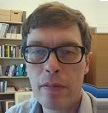Prelude to Nuclear and Particle Physics
( \newcommand{\kernel}{\mathrm{null}\,}\)
In this course I shall discuss nuclear and particle physics on a somewhat phenomenological level. The mathematical sophistication shall be rather limited, with an emphasis on the physics and on symmetry aspects.
Course text:
- W.E. Burcham and M. Jobes, Nuclear and Particle Physics, Addison Wesley Longman Ltd, Harlow, 1995.
Supplementary references
- B.R. Martin and G. Shaw, Particle Physics, John Wiley and sons, Chicester, 1996. A solid book on particle physics, slightly more advanced than this course.
- G.D. Coughlan and J.E. Dodd, The ideas of particle physics, Cambridge University Press, 1991. A more hand waving but more exciting introduction to particle physics. Reasonably up to date.
- N.G. Cooper and G.B. West (eds.), Particle Physics: A Los Alamos Primer, Cambridge University Press, 1988. A bit less up to date, but very exciting and challenging book.
- R. C. Fernow, Introduction to experimental Particle Physics, Cambridge University Press. 1986. A good source for experimental techniques and technology. A bit too advanced for the course.
- F. Halzen and A.D. Martin, Quarks and Leptons: An introductory Course in particle physics, John Wiley and Sons, New York, 1984. A graduate level text book.
- F.E. Close, An introduction to Quarks and Partons, Academic Press, London, 1979. Another highly recommendable graduate text.
- The particle adventure: . A very nice–but slightly low level–introduction to particle physics.
Thumbnail: Simulated Large Hadron Collider CMS particle detector data depicting a Higgs boson produced by colliding protons decaying into hadron jets and electrons (CC BY-SA 3.0; CERN).


